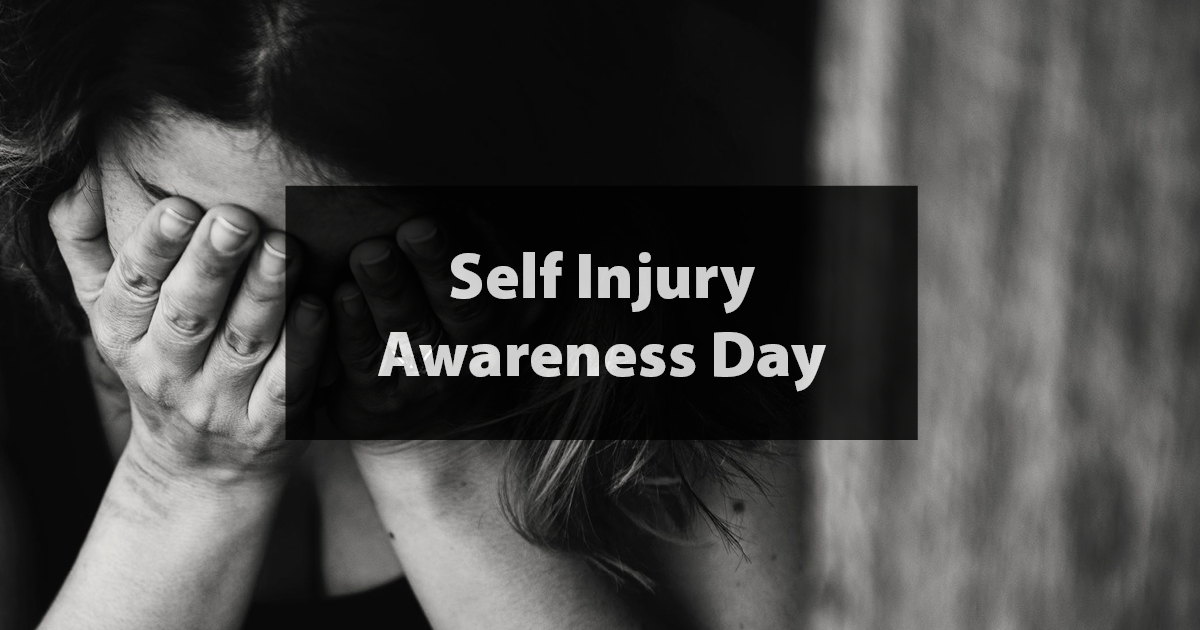Self-Injury Awareness Day – learn more about how to help! (1 March)
Posted: 1 March 2019 at 8:30 am | Author: CAW Business School
Self-injury affects people from all walks of life, regardless of age, gender, sexual orientation, ethnicity, career, or personal strength; and it’s much more common than many people realise.
The UK has the highest self-injury rate of any country in Europe with estimates of 400 in 100,000 people self-harm. What’s more – these figures are likely to be higher as many people who self-harm do not tell anyone about it.*
In order to live in a world where people treat self-injury with understanding, and where you can talk freely about mental health instead of suffering in silence, it’s incredibly important to raise awareness about self-injury. Read on to find out more about self-injury and how you can help someone who may be struggling to cope:
What is Self-Injury?
Self-injury (also known as self-harm) is when somebody deliberately harms their own body. It’s often used as a way to cope with or express intense emotional distress caused by underlying problems in life. People self-harm for lots of different reasons, however overwhelming emotional issues could be caused by:
- Social problems such as being bullied, having difficulties at work, having difficult relationships with friends/family, or coming to terms with their sexuality
- Trauma such as physical/sexual abuse, the death of a loved one or having a miscarriage
- Psychological causes such as having thoughts or voices telling them to self-harm, disassociating or borderline personality disorder
Although many people who self-harm do not want to end their lives, it’s important to know that sometimes the emotional distress leading to self-injury can also lead to thoughts of suicide, and self-injury can be a cry for help. Self-injury is also linked to anxiety and depression.
Types of self-injury
There are many different ways people can intentionally harm themselves, however most common forms of self-injury are:
- Scratching
- Cutting
- Burning
- Non-suicidal overdosing (chronic self-medication)
Indications of Self-Injury
Signs of self-injury can be hard to spot, as people who self-harm often hide their behaviour and keep their feelings to themselves because they’re ashamed or afraid of judgement. There may be no warning signs, but some of the things below might indicate that someone is suffering emotional distress and relying on self-injury:
- Obvious cuts, scratches or burns that do not appear to be of an accidental nature
- Frequent “accidents” that cause physical injury
- Regularly bandaged arms and/or wrists
- Taking more time off work either sick or to visit the doctor or hospital
- Wearing long sleeves and trousers even during hot weather
- Signs of low self-esteem, such as blaming themselves for any problems or thinking they’re not good enough for something
- Self-loathing and expressing a wish to punish themselves
- Becoming very withdrawn and not speaking to others
- Signs of depression such as a low mood, tearfulness or lack of motivation or interest in anything
How to help someone who is self-injuring
If someone you care about is self-injuring, there are things you can do to help:
- Let the person know you care about them and are available to listen
- Focus on the underlying problems behind the person’s self-injury rather than the self-injury itself. Don’t ask to see their scars or about the methods they use – instead, ask them if there is anything that is making them unhappy or stressed that you could help with
- Treat them as normally as you usually would. They are still the same person and self-injury does not make them weird or abnormal
- Don’t show disgust or anger, any negativity will increase the person’s distress and may alienate them from you
- Encourage the person to do things that make them happy (and continue to go out together if you’re close friends/family)
- Don’t gossip or tell anyone else about the situation unless they ask you to, or they ever express a wish to end their life
- Remember to take care of yourself – it is difficult coping with the self-injury of someone you care about, so don’t be afraid to seek extra support yourself.
How to help yourself if you’re self-injuring
If you’re using self-injury as a way to cope, you do not need to suffer in silence. Self-injury has nothing to do with personal strength and admitting that you need help is a sign of courage, not weakness.
The first step is speaking to your local GP. They will be able to treat any physical injuries, assess why you self-harm and recommend treatment/further assessment if needed.
Find your nearest GP services
There are also many organisations that can offer support and guidance for people who self-harm (as well as friends, families and co-workers) including:
- Samaritans– call 116 123 (open 24 hours a day), email jo@samaritans.org, or visit your local Samaritans branch
- Mind– call 0300 123 3393 or text 86463 (9am to 6pm on weekdays)
- Harmless– email info@harmless.org.uk
- National Self Harm Network forums
- YoungMinds Parents Helpline– call 0808 802 5544 (9.30am to 4pm on weekdays)

